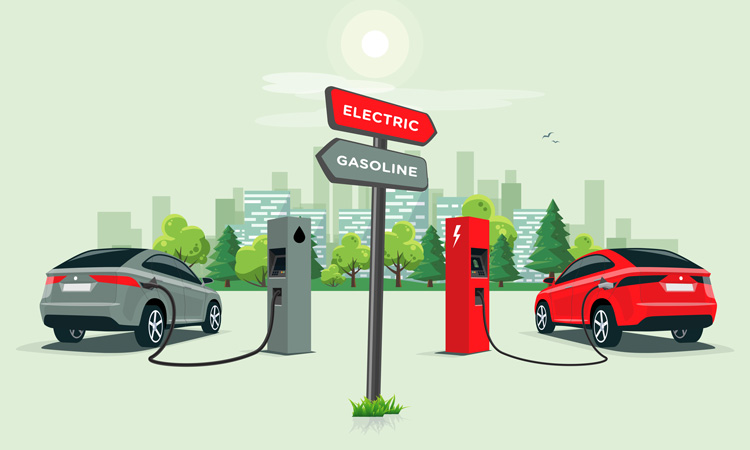Lower oil prices due to COVID-19 could reduce EV demand, says research
- Like
- Digg
- Del
- Tumblr
- VKontakte
- Buffer
- Love This
- Odnoklassniki
- Meneame
- Blogger
- Amazon
- Yahoo Mail
- Gmail
- AOL
- Newsvine
- HackerNews
- Evernote
- MySpace
- Mail.ru
- Viadeo
- Line
- Comments
- Yummly
- SMS
- Viber
- Telegram
- Subscribe
- Skype
- Facebook Messenger
- Kakao
- LiveJournal
- Yammer
- Edgar
- Fintel
- Mix
- Instapaper
- Copy Link
Posted: 8 April 2020 | Sam Mehmet (Intelligent Transport)
As the impacts of coronavirus have seen a decrease in demand for oil, prices have dropped alongside, which could result in fewer people transitioning to electric, according to research.


GlobalData research has suggested that lower oil prices as a result of the COVID-19 crisis could reduce electric vehicle (EV) demand and impair EU efforts to significantly reduce average new vehicle CO2 emissions in the European car market.
Mike Vousden, Automotive Analyst at GlobalData, commented: “GlobalData’s analysis suggests that low oil prices will lead to a longer waits for the reduced fuel costs offered by EVs to amortise their higher purchase prices.
“This could prove very problematic for the industry in a year that was supposed to mark the big shift to EVs to reduce fleet CO2 emissions in line with new tighter EU CO2 targets.”
EVs typically cost more than an equivalent internal-combustion-engined (ICE) vehicle, but their lower running costs reduce that price differential over time and, in the longer term, end up costing less overall than their ICE counterparts. However, the amount of time taken to make up that price differential is said to depend on the cost of fuel. Higher prices at the pumps mean EVs make up their extra purchase cost sooner, while lower fuel prices see ICE cars remain cheaper than EVs for longer.
“Much lower pump prices for gasoline and diesel have been ushered in by the COVID-19 crisis and a big hit to global oil demand. If pump prices are low in the long-term this will throw into question the economic case for users switching to electric vehicles,” Vousden continued.
“In the long run, this could see fewer motorists switching to EVs, putting the government’s ambitious targets for electrification at risk and potentially bringing increased fines for the vehicle manufacturers not complying with EU fleet average CO2 targets.”
Related topics
Alternative Power, COVID-19, Sustainable Urban Transport
Related modes
Electric Transport
Related organisations
GlobalData
Related people
Mike Vousden








